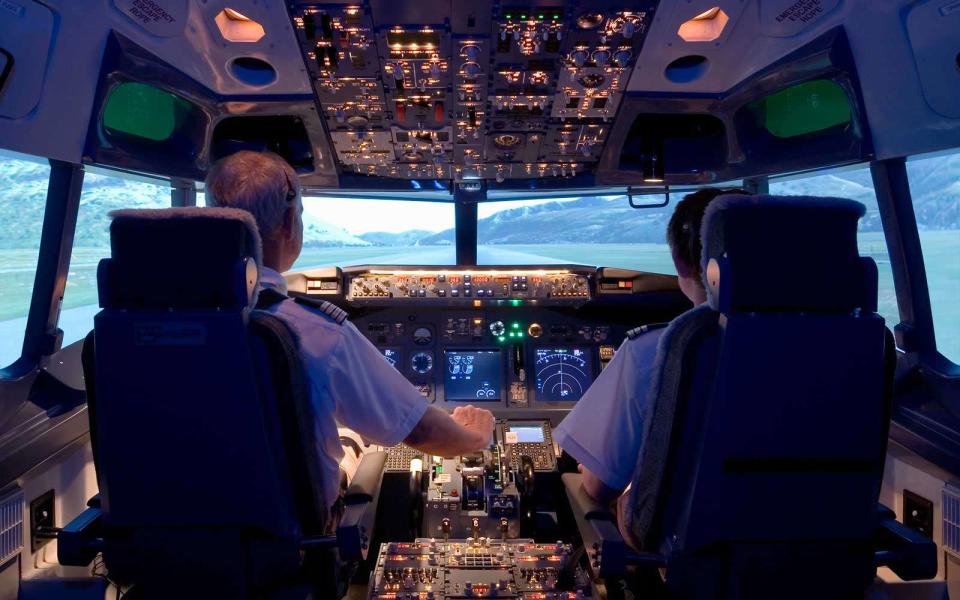What to Know About the Mandatory Retirement Age for Pilots
Arguments for raising the retirement age in the U.S. have been going around for years.

With 1,500 hours of required flight time and years of education, prospective pilots are looking for longevity once they officially start work at a large commercial airline. They’re eager to stay and earn the pay increases and freedoms that come with seniority. However, there is a limit.
In the U.S., the maximum retirement age for pilots is currently 65, mirroring the international mandatory retirement age set by the International Civil Aviation Authority.
However, some local authorities have extended that age in their markets, like Japan’s civil aviation authority which raised the mandatory retirement age to 68.
Recently, there’s been discussion around raising the maximum age in the U.S. to address a shortage of pilots.
Related:United Airlines Became the First Major U.S. Carrier to Open Its Own Flight School
The Debate Around the Mandatory Retirement Age for Pilots
According to NPR, numbers from the federal Bureau of Labor Statistics predict that the number of incoming pilots will not be able to keep up with airlines’ current hiring demands (they need about 14,500 new pilots each year over the next decade).
Some have suggested increasing the retirement age could help bridge that gap by keeping senior, experienced pilots onboard longer. Some associations also make a case that keeping on pilots who have learned to fly without the help of advanced digital systems is better for aviation safety. The contributions of more senior pilots may be in training, if not directly in the cockpit.
However, others argue that simply raising the age for retirement won’t actually address the problem.
“Because the international mandatory retirement age for pilots is also 65, if the age was raised in the United States, pilots 65 or older would no longer be allowed to fly overseas,” wrote NPR. "Those routes are usually flown on widebody jets, such as Boeing's 777 and 787, so those veteran pilots would have to be retrained on smaller narrow body planes to keep flying.”
There’s also the argument that recent air travel woes are not due to a pilot shortage but because of a lack of preparation on the airlines’ part. Captain Dennis Tajer, a spokesperson for the Allied Pilots Association, is quoted in NPR as saying that due to the pandemic, airlines incentivized early retirement among pilots to save money, but didn’t start training new pilots to take their places.
And, of course, while all airlines have strict health and skills testing requirements to ensure individual pilots — regardless of age — are qualified to fly, many say that certain abilities decline with age.
“I do feel like a mandatory retirement age is a good idea because motor skills and overall physical vitality diminish with age,” said commercial airline Captain Chris Manno.
Manno boasts a long piloting career that began by flying as a 727 flight engineer and eventually progressed to working as a 737 captain in 2010.
“I could move on to the 777 or 787 captain position now, but I choose the narrow-body lifestyle: 737 turnarounds, home every night, minimum work days,” he said. “Every 777 and 787 trip has at least one red-eye leg — the South American flying has two — and at least three days away from home per trip. That’s physically exhausting.”
The physical drain and mental strain that Manno referenced are why the retirement age rules exist, and also why there are strict rules for pilot rest hours between flights. But there are also good aspects to a pilot’s career, which is why many want to keep flying as long as they are allowed.
“The main advantages are probably the high income and schedule flexibility associated with longevity at a particular airline,” Manno said. “But those who get hired late — say their 40s or 50s — will not enjoy either advantage. I’ve been with my airline for 32.5 years and have an ideal flying schedule: 13 days a month, home every night. So, if you’re very senior, it’s hard to give up the airline career.”
What Pilots Do After They Retire
The debate around when pilots should retire may continue, but whether it’s at 65 or 68, there is life after flying.
After retiring, many pilots pursue second careers as flight trainers or find other jobs in aviation. Or, if they’re like Manno, they have different plans.
“When I retire, I want no more check rides, procedures tests, evaluations, FAA scrutiny, flight physicals — none of that. I plan to walk away, to be done flying and call it good,” he said.
Manno is a unique case because he hasn’t limited his current career to piloting. He also holds a PhD in English, is a novelist and cartoonist, and teaches as an adjunct professor at Texas Wesleyan University — a post he’s held since 2002.
“At around the 15-year mark in my airline career, I decided there just had to be more to life than climb, cruise, descent, and landing.”
For more Travel & Leisure news, make sure to sign up for our newsletter!
Read the original article on Travel & Leisure.

